
The iPhone 12 Pro and iPhone 12 Pro Max are similar phones, but with several key differences other than screen size. Read on as we walk through all the differences between iPhone 12 Pro vs. iPhone 12 Pro Max.
In this comparison, we focus specifically on the 6.1-inch iPhone 12 Pro and the 6.7-inch iPhone 12 Pro Max. While there are similarities with the iPhone 12 mini and iPhone 12, we aren’t focusing on those comparisons in this article. Instead, we’re focusing purely on the high-end iPhone 12 Pro and iPhone 12 Pro Max similarities and differences.
We’ll have additional iPhone 12 lineup comparisons over the coming days and you can read our other 2020 iPhone comparisons at the links below:
- iPhone 12 vs. iPhone 12 Pro: Which should you buy?
- iPhone 6 vs. 2020 iPhone SE: Here’s why you should upgrade
- iPhone SE vs. iPhone XR comparison: Which should you buy?
iPhone 12 Pro vs. iPhone 12 Pro Max: Display
Other than the camera technology, which we will touch on in more detail later, the display size is the biggest differentiator between the iPhone 12 Pro and the iPhone 12 Pro Max. Here are the details you need to know.
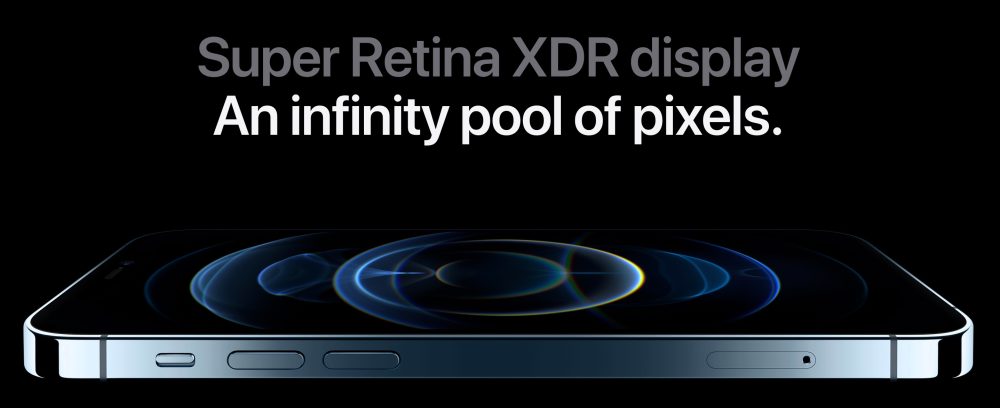
The iPhone 12 Pro features a 6.1-inch Super Retina XDR display with a resolution of 2532-by-1170 pixels, equating to 460 pixels-per-inch. On the other hand, the iPhone 12 Pro Max features a 6.7-inch Super Retina XDR display with a resolution of 2778-by-1284 pixels, equating to a slightly lower 458 pixels-per-inch.
The difference in pixel density between the iPhone 12 Pro and iPhone 12 Pro Max is so minor that users will almost certainly not be able to actually notice it. The other display features are the same between the iPhone 12 Pro and iPhone 12 Pro Max:
- Super Retina XDR display
- HDR display
- 2,000,000:1 contrast ratio (typical)
- True Tone display
- Wide color display (P3)
- Haptic Touch
- 800 nits max brightness (typical)
- 1200 nits max brightness (HDR)
The iPhone 12 Pro and iPhone 12 Pro Max displays are both protected by Ceramic Shield technology, which Apple says offers 4x better drop performance than previous iPhones.
Design
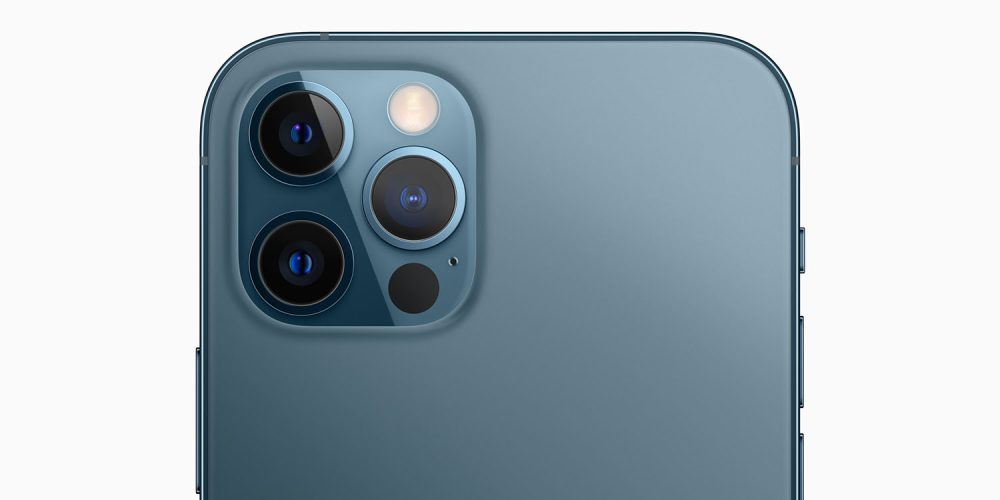
Other than the size difference, the overall design of the iPhone 12 Pro and iPhone 12 Pro Max is the same. Apple’s iPhone 12 design language focuses on flat edges similar to the iPad Pro as well as the iPhone 4/iPhone 5 days. The devices also feature edge-to-edge displays with identically sized notch cutouts on the front to house the Face ID sensors.
The iPhone 12 Pro and iPhone 12 Pro Max are made from “surgical-grade stainless steel,” which gives them a glossy and shiny finish around the edges. Both devices are rated for IP68 splash, water, and dust resistance. Under this rating, they can withstand submersion at a maximum depth of 6 meters for up to 30 minutes.
The difference in screen size between the iPhone 12 Pro and iPhone 12 Pro Max also has implications on other dimensions. Here are the details:
iPhone 12 Pro dimensions
- Height – 5.78 inches (146.7 mm)
- Width – 2.82 inches (71.5 mm)
- Depth – 0.29 inch (7.4 mm)
- Weight – 6.66 ounces (189 grams)
iPhone 12 Pro Max dimensions
- Height – 6.33 inches (160.8 mm)
- Width – 3.07 inches (78.1 mm)
- Depth – 0.29 inch (7.4 mm)
- Weight – 8.03 ounces (228 grams)
As you can see, the iPhone 12 Pro Max is noticeably heavier and larger because of the 6.7-inch display. Whether this is worth it depends a lot on your personal preference for screen size, as well as which device from which you’re upgrading.
Performance and battery life
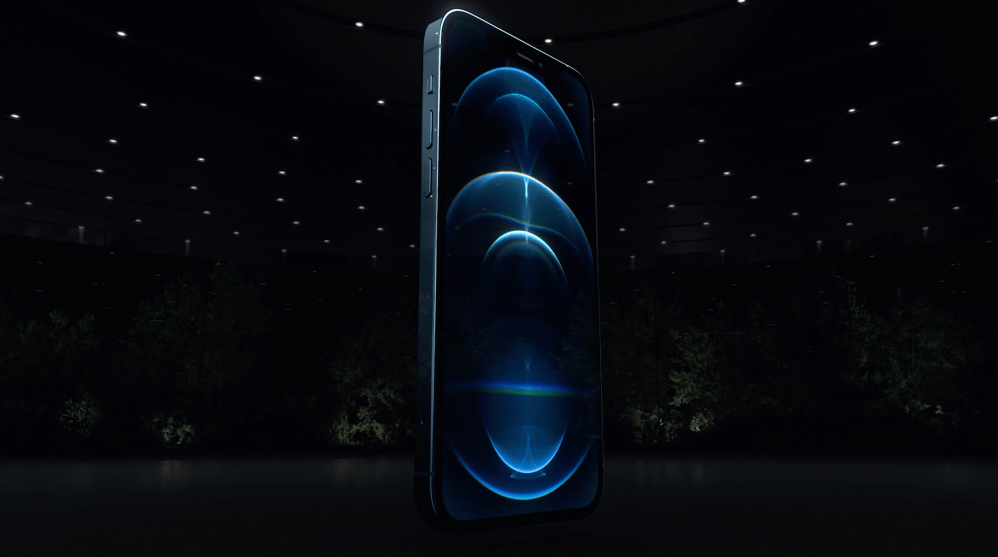
The iPhone 12 Pro and iPhone 12 Pro Max identical is in regard to processor performance. Both devices feature Apple’s latest A14 Bionic process, which Apple touts is “the fastest chip in a smartphone.” The A14 Bionic features two high-performance cores and four efficiency cores.
Both the iPhone 12 Pro and the iPhone 12 Pro Max also feature the latest Neural Engine for improved machine learning features and capabilities. Apple says the new 16-core Neural Engine offers an 80% increase in performance compared to the prior generation. You also get 6GB of RAM in both devices, which is up from the 4GB of RAM that Apple used in the iPhone 11 Pro and iPhone 11 Pro Max.
There is also support fast-charging for getting an up to 50% charge in 30 minutes with a 20W power adapter. You can also use Qi wireless charging at 7.5W of power and MagSafe wireless charging at 15W of power.
A major benefit of the larger iPhone 12 Pro Max design is that there’s simply more space inside for a larger battery. So, how much power can you expect from a charge? Here’s what Apple claims:
iPhone 12 Pro battery life
- Video playback: Up to 17 hours
- Video playback (streamed): Up to 11 hours
- Audio playback: Up to 65 hours
iPhone 12 Pro Max battery life
- Video playback: Up to 20 hours
- Video playback (streamed): Up to 12 hours
- Audio playback: Up to 80 hours
Connectivity
The iPhone 12 lineup is the first iPhone lineup to include 5G connectivity, and that includes the iPhone 12 Pro as well as the iPhone 12 Pro Max. This means that regardless of which you buy, you’ll get the fastest version of 5G available in your area.
In the United States, the iPhone 12 Pro and the iPhone 12 Pro Max both support sub-6GHz 5G as well as mmWave 5G. Internationally, however, iPhone 12 5G support is limited to sub-6GHz connectivity.
Best iPhone 12 Pro cases:
- Caseology Nano
- ESR Air
- TORRAS Ultra Slim Case
- ESR Leather
Best iPhone 12 Pro Max cases:
- Casekoo Slim Fit
- Torras Slim Fit
- OtterBox Commuter Series
- Totallee
Camera

With last year’s iPhone 11 Pro and iPhone 11 Pro Max, the differentiating feature was almost solely the difference in screen size. This year, however, the iPhone 12 Pro Max actually offers several notable camera improvements over the smaller iPhone 12 Pro.
Both the iPhone 12 Pro and the iPhone 12 Pro Max feature a triple-lens camera setup on the back with 12MP ultra wide, wide, and telephoto lenses. You also get support for Night mode, Deep Fusion, and Apple ProRAW across the board.
Where things start to differ, however, is in terms of sensor size. The wide camera on the iPhone 12 Pro Max features a 47% larger sensor than on the iPhone 12 Pro, with 1.7μm pixels. Apple says that this difference in sensor size makes for a whopping 87% improvement in low-light conditions.
The wide camera on the iPhone 12 Pro also features sensor-shift optical image stabilization, which stabilizes the sensor itself rather than the lens. Apple says that this will greatly improve stabilization for photos and videos.
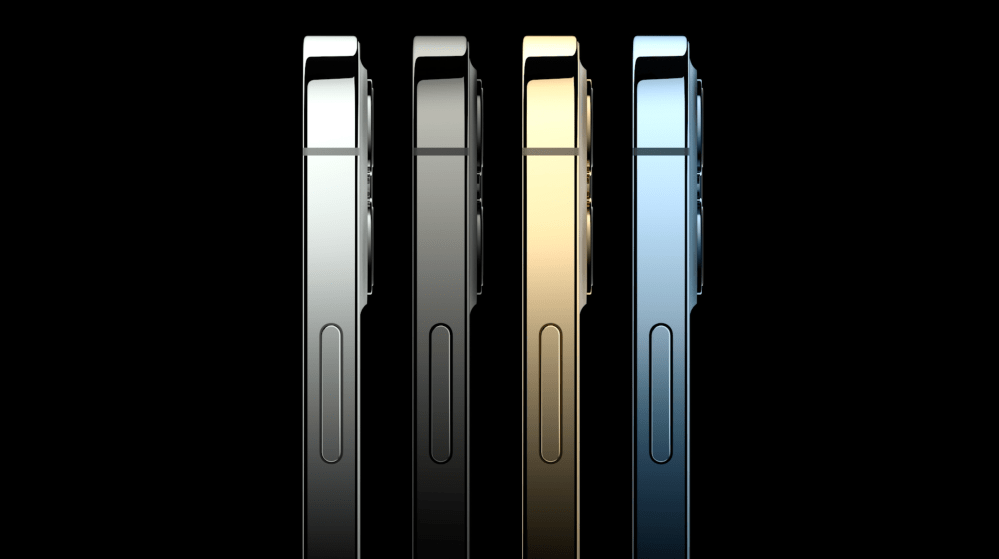
Between the ultra wide, wide, and telephoto lenses, Apple says that the iPhone 12 Pro Max features a total optical zoom range of 5x, whereas the iPhone 12 Pro features a 4x optical zoom range. The iPhone 12 Pro features digital zoom up to 10x, and the iPhone 12 Pro Max features digital zoom up to 12x.
Finally, the iPhone 12 Pro Max features a 2.5× ƒ/2.2 telephoto lens, while the iPhone 12 Pro features a 2x ƒ/2.0 telephoto lens. The higher aperture on the iPhone 12 Pro Max lens means that there is less light is entering the camera, so the iPhone 12 Pro lens actually lets in more light.
John Gruber at Daring Fireball has perhaps the most concise explanation of what exactly this means — or, rather, how little this should practically affect camera performance:
2.5× is ‘better’ than 2.0× because it’s longer, offering more effective optical zoom. But ƒ/2.0 is ‘better’ than ƒ/2.2, because it lets in more light. But whatever low-light advantage the 12 Pro’s ƒ/2.0 aperture might have over the 12 Pro Max’s ƒ/2.2 aperture, in practice this is almost certainly effectively moot, because in low-light situations the camera system probably gets better results using the faster 1× camera and digitally zooming to a 2×/2.5× crop factor.
Here are the rest of the camera features shared by the iPhone 12 Pro and the iPhone 12 Pro Max:
- Night mode portraits enabled by LiDAR Scanner
- Portrait mode with advanced bokeh and Depth Control
- Portrait Lighting with six effects (Natural, Studio, Contour, Stage, Stage Mono, High‑Key Mono)
- Dual optical image stabilization (Wide and Telephoto)
- Five-element lens (Ultra Wide); six‑element lens (Telephoto); seven-element lens (Wide)
- Brighter True Tone flash with Slow Sync
- Panorama (up to 63MP)
- Sapphire crystal lens cover
- 100% Focus Pixels (Wide)
- Night mode (Ultra Wide, Wide)
- Deep Fusion (Ultra Wide, Wide, Telephoto)
- Smart HDR 3 with Scene Detection
- Apple ProRAW
- Wide color capture for photos and Live Photos
- Lens correction (Ultra Wide)
- Advanced red-eye correction
- Photo geotagging
- Auto image stabilization
- Burst mode
- Image formats captured: HEIF and JPEG
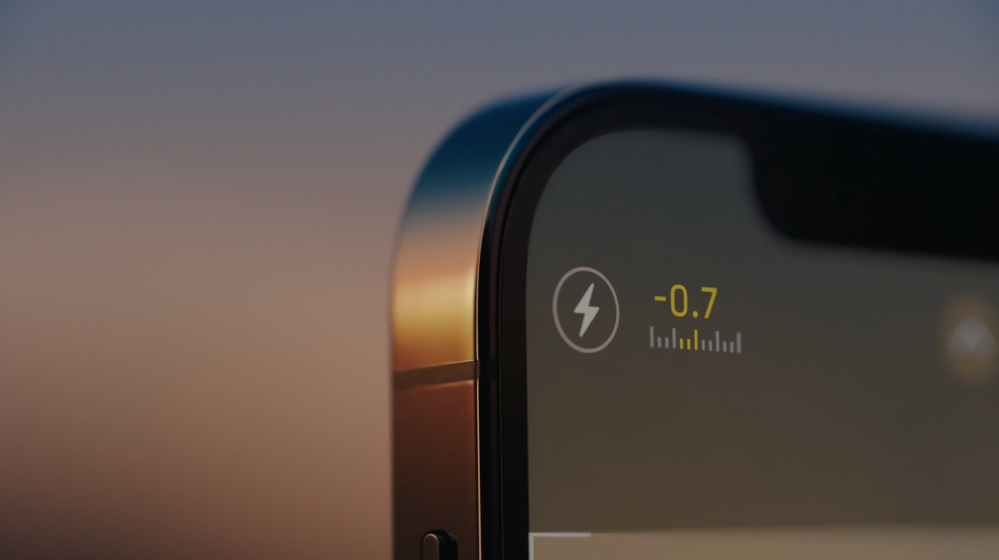
The front-facing selfie camera is the same on the iPhone 12 Pro and iPhone 12 Pro Max with a 12MP camera and ƒ/2.2 aperture. There is also support for Night mode when using the front-facing camera for the first time this year.
Finally, the video recording features are virtually the same between the iPhone 12 Pro and iPhone 12 Pro Max:
- HDR video recording with Dolby Vision up to 60 fps
- 4K video recording at 24 fps, 30 fps, or 60 fps
- 1080p HD video recording at 30 fps or 60 fps
- 720p HD video recording at 30 fps
- Optical image stabilization for video (Wide)
- 2x optical zoom in, 2x optical zoom out; 4x optical zoom range (iPhone 12 Pro)
- Digital zoom up to 6x (iPhone 12 Pro)
- 2.5x optical zoom in, 2x optical zoom out; 5x optical zoom range (iPhone 12 Pro Max)
- Digital zoom up to 7x (iPhone 12 Pro Max)
- Night mode Time-lapse
To recap, the iPhone 12 Pro Max offers some notable camera features over the iPhone 12 Pro. The different sensor is the biggest upgrade from the iPhone 12 Pro to the iPhone 12 Pro Max and it could offer some major improvements to indoor photography, particularly in low-light scenarios and when working in conjunction with the new sensor-shift optical image stabilization.
Colors, storage, and pricing
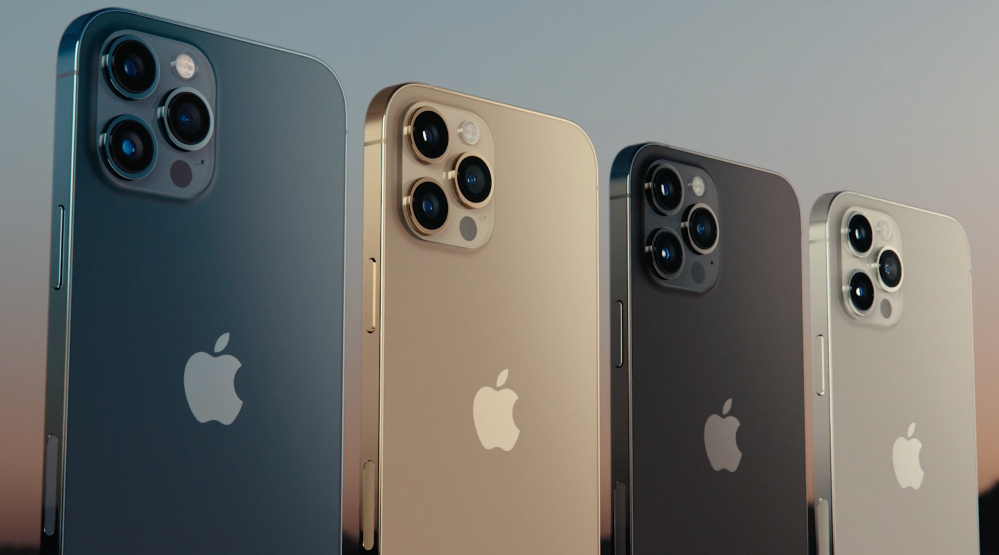
The iPhone 12 Pro retails for $999 for 128GB of storage, $1,099 for 256GB of storage, and $1,299 for 512GB of storage. The iPhone 12 Pro Max starts at $1,099 for 128GB, $1,199 for 256GB of storage, and $1,399 for 512GB of storage.
Both the iPhone 12 Pro and iPhone 12 Pro Max are available in four different colors: pacific blue, gold, graphite, and silver.
Included accessories
Citing environmental concerns, Apple is no longer including headphones or a charging brick in the iPhone 12 box this year. Here are some accessories you might consider picking up to help fill that gap.
- Native Union Drop 10W Qi Charger
- Anker 30W USB-C wall charger
- USB-C to Lightning cable
- Lightning to 3.5mm headphone adapter or cable
iPhone 12 Pro vs. iPhone 12 Pro Max features
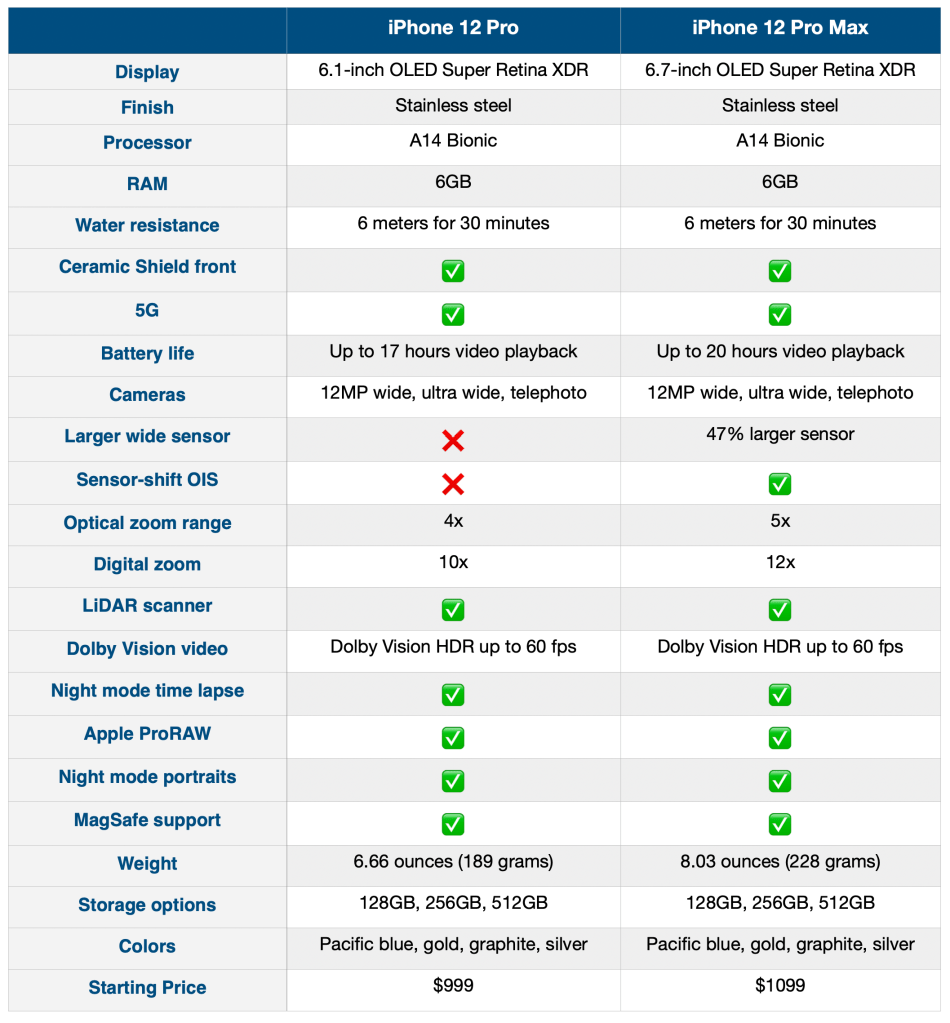
Wrap-up: iPhone 12 Pro vs. iPhone 12 Pro Max
The iPhone 12 Pro Max is a big phone. It’s the biggest phone that Apple has ever released, and it’s even bigger than previous “Max” and “Plus” phones over the years. This year, you get notable features in exchange for that larger form factor, including improved camera technology and additional battery life.
For many people, however, the size of the iPhone 12 Pro Max is likely prohibitive. A lot of users aren’t going to be able to use it with one hand, which could be a determining factor. The iPhone 12 Pro Max is also more expensive than the iPhone 12 Pro, which will factor into many people’s decisions.
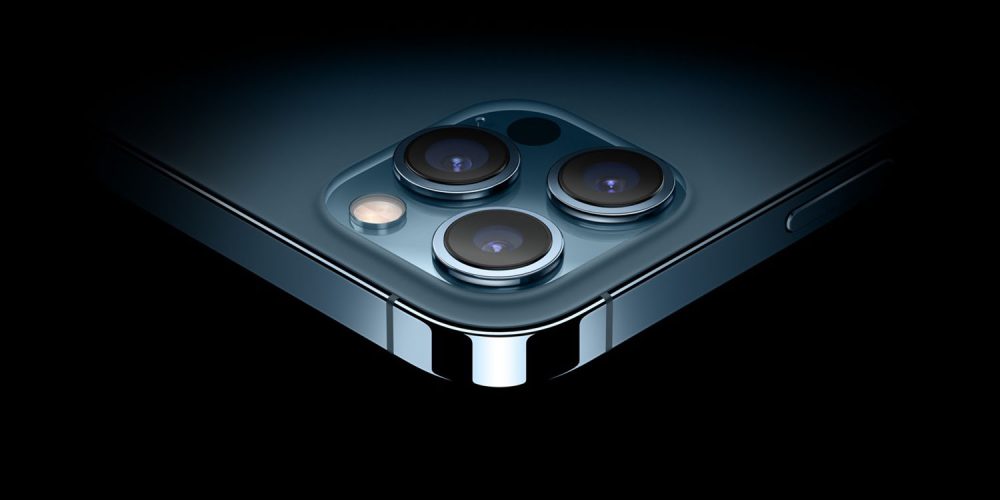
If you’ve used the “Max” versions of the iPhone before this year, however, the form factor of this year’s iPhone 12 Pro Max will likely be manageable. And for the first time in recent years, you get additional features in exchange for the larger form factor.
On the flip side, the iPhone 12 Pro offers a similar set of features, packed into a more manageable footprint and at a lower price point. You miss out on some high-end camera features, but for many people, the iPhone 12 Pro camera is more than capable enough.
With all of that having been said, the best choice for most people this year is likely the iPhone 12 Pro — or even the iPhone 12. What do you think of the iPhone 12 Pro vs. iPhone 12 Pro Max? Does Apple do enough to justify the $200 premium for the iPhone 12 Pro? Let us know your thoughts down in the comments!
Author: Chance Miller
Source: 9TO5Mac



